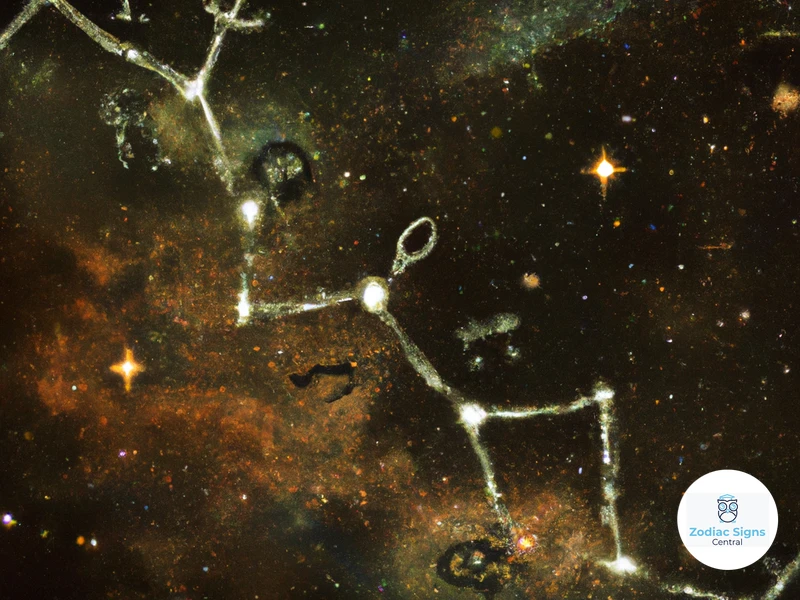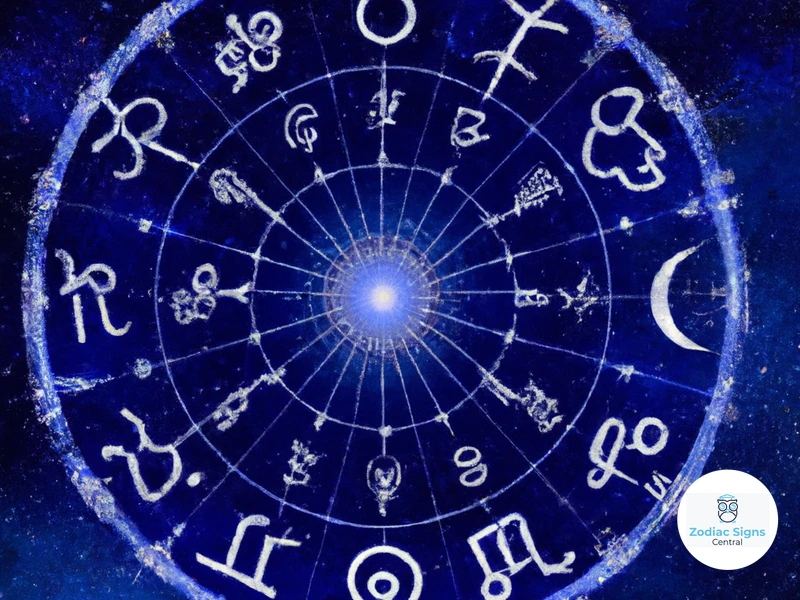The study of astrology has captivated humans for centuries, as we seek to understand the mysteries of the celestial bodies and their influence on our lives. In ancient Greece, the origins of zodiac signs can be traced back to a rich tapestry of astral beliefs and the influence of Babylonian astrology. The Greek zodiac, with its twelve distinct symbols, carries deep symbolism and interpretations that have shaped our understanding of astrology today. In this article, we will explore the fascinating world of zodiac signs in ancient Greece, delve into the symbolism associated with each sign, and discover the contributions of renowned Greek astrologers such as Ptolemy and Vettius Valens. Join us on this journey to uncover the secrets and wisdom of the ancient Greek astrological traditions.
The Origins of Zodiac Signs

In ancient Greece, the belief in the influence of the stars and celestial bodies on human lives was deeply ingrained. The Greeks believed that the alignment of the stars and planets at the moment of a person’s birth influenced their character, temperament, and destiny. This belief in astral determinism led to the development of astrology and the concept of zodiac signs. The Greek word “zōidion” means “little animal” or “living being,” which signifies the connection between the zodiac signs and the natural world. The ancient Greeks believed that each zodiac sign was associated with a specific constellation, representing a different aspect of nature or animal symbolism.
While the Greeks made significant contributions to astrology, they were heavily influenced by the astrological practices of the ancient Babylonians. The Babylonians developed a system of dividing the sky into twelve equal parts, which became the foundation for the zodiac as we know it today. The Greeks adopted this system and incorporated it into their own astrological traditions. However, the Greeks added their own interpretations, symbolism, and mythology to the zodiac signs. This fusion of Babylonian and Greek astrology resulted in the unique and rich astrological traditions that were deeply ingrained in ancient Greek society.
Discover more about the role of astrology in daily life in Ancient Greece in our article on astrology and dietary choices.
1. Astral Beliefs in Ancient Greece
Astral beliefs held a significant place in the ancient Greek society, shaping the way people understood their place in the cosmos. The Greeks believed that the celestial bodies, such as the stars and planets, exerted a profound influence on human affairs. They saw the alignment of these celestial bodies as a reflection of the divine order and sought to interpret their movements and positions through astrology. Astrologers in ancient Greece believed that the position of the stars and planets at the time of a person’s birth could reveal important information about their personality traits, strengths, weaknesses, and even their future. These beliefs were intertwined with Greek mythology, with each zodiac sign often associated with a particular deity or mythological figure. For example, Aries, the first sign of the zodiac, was associated with the god of war, Ares. The Greeks saw their gods and goddesses as active participants in the human experience, and the alignment of the stars was seen as a reflection of their divine will. The astral beliefs of ancient Greece played a central role in shaping not only astrology but also the wider understanding of the interconnectedness of the natural and divine realms.
To learn more about how zodiac signs can influence dietary choices, check out our article on zodiac signs and diets.
2. Influence of Babylonian Astrology
The influence of Babylonian astrology on the development of zodiac signs in ancient Greece cannot be understated. The Greeks were exposed to Babylonian astrological practices through trade and cultural interactions, which led to a merging of their own beliefs with those of the Babylonians. The Babylonians had a keen interest in studying the movements of the celestial bodies and their impact on human lives. They used this knowledge to create a system of astrology that divided the sky into twelve equal parts, each represented by a different constellation. These constellations became the basis for the zodiac signs we are familiar with today.
The Greeks embraced this Babylonian system of astrology and integrated it into their own culture and traditions. They adopted the twelve zodiac signs and associated them with specific animals, incorporating their own mythology and symbolism. For example, Aries, the first zodiac sign, was associated with the ram, representing courage and leadership. Taurus, the second sign, was linked to the bull, symbolizing strength and determination.
However, the Greeks also added their own unique interpretations to the zodiac signs. They viewed the constellations not only as representations of animals but also as embodying different aspects of nature and human characteristics. This blending of Babylonian astrology with Greek mythology resulted in a richer and more nuanced understanding of the zodiac signs.
If you’re curious about how your zodiac sign might influence your job satisfaction, check out our article on zodiac job satisfaction to explore this fascinating topic.
The Greek Zodiac: Symbolism and Interpretations
The Greek zodiac comprises twelve distinct symbols, each representing a specific period of the year and carrying its own unique symbolism and interpretations. Let’s explore each zodiac sign:
1. Aries: The Ram
Aries, the first sign of the zodiac, is symbolized by the ram. It is associated with boldness, assertiveness, and a pioneering spirit. Individuals born under this sign are often energetic, confident, and natural leaders.
2. Taurus: The Bull
Taurus, represented by the bull, is known for its strength, determination, and grounded nature. Those born under this sign are often dependable, practical, and have a strong sense of loyalty.
3. Gemini: The Twins
Gemini, symbolized by the twins, reflects duality and versatility. Individuals under this sign are often curious, adaptable, and skilled communicators. They have a natural ability to connect with others.
4. Cancer: The Crab
Cancer, represented by the crab, embodies sensitivity, nurturing, and emotional depth. Those born under this sign are often compassionate, intuitive, and deeply connected to their emotions.
5. Leo: The Lion
Leo, symbolized by the lion, is associated with charisma, confidence, and leadership. Leos are often natural-born performers, creative, and have a strong sense of self-expression.
6. Virgo: The Maiden
Virgo, represented by the maiden, is known for its practicality, attention to detail, and analytical nature. Individuals born under this sign are often organized, hardworking, and have a strong sense of responsibility.
7. Libra: The Scales
Libra, symbolized by the scales, is associated with balance, harmony, and justice. Those born under this sign are often diplomatic, social, and have a keen sense of fairness.
8. Scorpio: The Scorpion
Scorpio, represented by the scorpion, embodies intensity, passion, and transformation. Individuals under this sign are often magnetic, mysterious, and have a deep capacity for emotional depth.
9. Sagittarius: The Archer
Sagittarius, symbolized by the archer, is known for its adventurous spirit, optimism, and love for knowledge. Those born under this sign are often philosophical, free-spirited, and have a thirst for exploring new horizons.
10. Capricorn: The Sea-Goat
Capricorn, represented by the sea-goat, combines the earthiness of a goat with the depth of the sea. Individuals under this sign are often ambitious, determined, and have a strong sense of responsibility and discipline.
11. Aquarius: The Water-Bearer
Aquarius, symbolized by the water-bearer, represents innovation, humanitarianism, and intellectual pursuits. Those born under this sign are often independent, progressive, and have a strong desire for social justice.
12. Pisces: The Fish
Pisces, represented by the fish, embodies intuition, empathy, and spirituality. Individuals under this sign are often compassionate, imaginative, and have a deep connection to the realms of emotions and the unconscious.
The symbolism and interpretations of the Greek zodiac signs provide insights into different aspects of human personality and behavior. Each sign carries its own strengths, challenges, and potential, guiding individuals on their life journey.
Learn about the relationship between zodiac signs and career choices in our article on zodiac job satisfaction.
1. Aries: The Ram
1. Aries: The Ram
Aries is the first sign of the Greek zodiac and is symbolized by the Ram. In Greek mythology, the Ram represents the golden fleece sought by Jason and the Argonauts. The Ram is associated with bravery, leadership, and initiative. Individuals born under the sign of Aries are believed to possess a strong will, determination, and a pioneering spirit.
Aries is ruled by the planet Mars, which lends its assertive and passionate energy to those born under this sign. They are natural-born leaders who thrive in competitive environments and enjoy taking risks. Their fiery nature makes them enthusiastic and driven, often pushing them to strive for success in all areas of life.
Being a cardinal sign, Aries initiates new beginnings and projects. They are known for their independent nature and dislike being constrained by rules or restrictions. Aries individuals are known for their honesty and direct communication style, often speaking their minds without hesitation.
In terms of compatibility, Aries is most compatible with other fire signs like Leo and Sagittarius, as well as air signs like Gemini and Aquarius. These signs tend to complement Aries’ adventurous spirit and love for intellectual stimulation.
It is important to note that while these general traits are often associated with individuals born under the sign of Aries, astrology recognizes that every individual is unique, and factors such as planetary placements and personal experiences also shape one’s personality.
Stay tuned as we explore the symbolism and interpretations of the remaining zodiac signs in ancient Greece.
The Greek Astrologers and their Contributions

The rich legacy of Greek astrology would not be complete without acknowledging the contributions of notable Greek astrologers. Two prominent figures in the development and advancement of astrology during this time were Ptolemy and Vettius Valens.
1. Ptolemy – Ptolemy, known for his influential work “Tetrabiblos,” is considered one of the most influential Greek astrologers. His book, comprising four volumes, delves into the fundamental principles of astrology and provides detailed explanations of astrological techniques. Ptolemy’s work encompassed topics such as natal astrology, horoscopic astrology, and planetary movements.
2. Vettius Valens – Another notable Greek astrologer, Vettius Valens, made significant contributions to astrology through his work called the “Anthology.” This extensive compilation covers a wide range of astrological topics, including birth charts, predictive techniques, and interpretations of celestial events. Valens’ work provides valuable insights into the Greek astrological practices and their application in different areas of life.
Both Ptolemy and Vettius Valens played a crucial role in preserving and advancing the knowledge of astrology in ancient Greece. Their contributions laid the foundation for future astrologers, ensuring that the Greek astrological traditions would continue to influence and shape the field for generations to come.
In the next section, we will delve deeper into each of the twelve Greek zodiac signs, exploring their symbolism, interpretations, and significance in ancient Greek astrology.
1. Ptolemy and the Tetrabiblos
Ptolemy was a renowned Greek astronomer and astrologer who made significant contributions to the field of astrology. His most notable work, “Tetrabiblos,” is considered one of the foundational texts of Western astrology. The word “Tetrabiblos” translates to “Four Books,” and it is divided into four sections that explore various aspects of astrology.
Book I: Astrological Principles
In the first book, Ptolemy introduces the fundamental principles of astrology. He discusses the influence of the celestial bodies, their positions, and their aspects on human lives. Ptolemy emphasizes the importance of understanding the relationship between the stars and human character, as well as the significance of individual birth charts in interpreting these influences.
Book II: Astrological Charts
The second book focuses on the construction and interpretation of astrological charts. Ptolemy explains the methods for calculating the positions of the planets and the ascendant, and how to create a birth chart for an individual. He also provides guidelines for interpreting the different elements of the chart, such as the placements of the planets and the aspects between them.
Book III: Astrological Predictions
In the third book, Ptolemy delves into the realm of predictive astrology. He discusses various techniques for forecasting events and predicting the future based on the movements of the celestial bodies. Ptolemy explores topics such as planetary transits, planetary periods, and eclipses, offering insights into how these phenomena can be interpreted to make predictions about individuals and societies.
Book IV: Mundane Astrology
The fourth and final book of “Tetrabiblos” is dedicated to mundane astrology, which focuses on the astrology of nations and the world at large. Ptolemy explores the astrological influences on governmental affairs, weather patterns, and other broader societal events. He emphasizes the interconnectedness between celestial phenomena and earthly occurrences, highlighting the impact that astrology can have on understanding the world.
Ptolemy’s “Tetrabiblos” served as a comprehensive guide to astrology and greatly influenced the development of astrological traditions for centuries to come. His meticulous and systematic approach to astrology helped establish the discipline as a respected field of study in ancient Greece and beyond.
2. Vettius Valens and the Anthology
Vettius Valens was a prominent Greek astrologer who made significant contributions to the field during the 2nd century CE. His most notable work is the “Anthology,” a comprehensive collection of astrological teachings and interpretations. Valens’ work served as a valuable resource and reference for astrologers in ancient Greece and continues to be studied and referenced by modern astrologers.
The “Anthology” consists of nine books, each focusing on different aspects and techniques of astrology. Valens covers a wide range of topics, including natal astrology, electional astrology, and mundane astrology. One of the unique features of his work is the emphasis on timing techniques, which involve determining the most opportune time to undertake certain activities or events based on astrological influences.
Valens delves into detailed explanations of planetary positions, aspects, and their effects on different areas of life. He provides interpretations for each zodiac sign, discussing their characteristics, personalities, and how they interact with other signs. Additionally, Valens explores the role of the houses in astrology and their significance in determining various aspects of a person’s life, such as career, relationships, and health.
Within the “Anthology,” Valens also includes case studies and example charts to illustrate his teachings. These real-life examples offer practical insights into the application of astrology and provide readers with a deeper understanding of the complexities of astrological interpretation.
Valens’ work played a vital role in preserving and expanding the knowledge of astrology in ancient Greece. His meticulous approach to astrology and his comprehensive teachings in the “Anthology” have been invaluable in shaping the practice of astrology throughout history.
To learn more about the role of astrology in career choices, check out our article on zodiac signs and job satisfaction.
Conclusion
In conclusion, the ancient Greek astrological traditions surrounding the zodiac signs offer a fascinating glimpse into the beliefs and practices of the past. The origins of zodiac signs can be traced back to a combination of astral beliefs in ancient Greece and the influences of Babylonian astrology. The Greeks added their own interpretations and symbolism, associating each zodiac sign with specific constellations and animal symbolism. These zodiac signs were believed to have a profound influence on the character, temperament, and destiny of individuals.
Greek astrologers like Ptolemy and Vettius Valens further contributed to the development and understanding of astrology through their influential works. Ptolemy’s “Tetrabiblos” and Valens’ “Anthology” provided comprehensive insights into the interpretation and prediction of astrological events.
The study of the Greek zodiac signs and astrological traditions continues to captivate and intrigue people today. Whether one believes in the influence of the stars or not, exploring the symbolism and interpretations associated with the zodiac signs allows for a deeper understanding of ancient Greek culture and the significance of astrology in their society.
Overall, the ancient Greek astrological traditions leave a lasting imprint on the field of astrology and provide a unique insight into our relationship with the cosmos. As we continue to explore the mysteries of the celestial bodies, the wisdom of the ancient Greeks serves as a timeless reminder of the interconnectedness between the heavens and human existence.
Frequently Asked Questions

1. What is the significance of zodiac signs in ancient Greece?
Zodiac signs held great significance in ancient Greece as they were believed to reflect the influence of celestial bodies on human lives. The alignment of the stars and planets at the time of a person’s birth was thought to shape their character and destiny.
2. How were zodiac signs associated with the natural world?
The Greeks believed that each zodiac sign was connected to a specific constellation, embodying the characteristics of different animals and aspects of nature. This association with the natural world gave the zodiac signs their symbolic meaning.
3. Did each zodiac sign have a specific mythology associated with it?
Yes, each zodiac sign in ancient Greece was linked to specific myths and legends. These myths often featured gods, goddesses, and heroes associated with the particular zodiac sign, adding depth and storytelling to the astrological interpretations.
4. Were the zodiac signs in ancient Greece the same as the ones we use today?
Yes, the zodiac signs in ancient Greece, such as Aries, Gemini, Leo, etc., are the same as the ones used in modern astrology. However, the interpretations and symbolism may have evolved over time.
5. How did the Greeks incorporate Babylonian astrology into their own traditions?
The Greeks adopted the Babylonian system of dividing the sky into twelve equal parts, which became the foundation for the zodiac signs. They then added their own interpretations, symbolism, and mythology to create their unique astrological traditions.
6. Who were some of the notable ancient Greek astrologers?
Ptolemy and Vettius Valens were renowned ancient Greek astrologers. Ptolemy’s book, Tetrabiblos, and Valens’ Anthology are significant contributions to the field of astrology.
7. What is the role of astrology in daily life in ancient Greece?
Astrology played a significant role in ancient Greek society. It influenced various aspects of life, including personal relationships, career choices, and even dietary decisions, as people believed that the alignment of the stars could affect their overall well-being.
8. Were there variations in interpretation among different ancient Greek astrologers?
Yes, there were variations in interpretation among different ancient Greek astrologers. While there were common principles, each astrologer had their unique approach and emphasis, leading to different nuances in their astrological predictions and readings.
9. Did the ancient Greeks use zodiac signs for prediction and forecasting?
Yes, the Greeks utilized zodiac signs for prediction and forecasting. Astrologers would analyze the positions of the stars and planets to make predictions about a person’s future, events, and even natural phenomena.
10. How did the ancient Greek belief in zodiac signs influence art and culture?
Zodiac signs and their symbolism heavily influenced ancient Greek art and culture. They appeared in various forms, from pottery and sculptures to mosaics and jewelry, reflecting the significance of astrology in daily life and society as a whole.
References
Frequently Asked Questions

What is the significance of Zodiac signs in Ancient Greece?
‘], [‘
Zodiac signs held great importance in Ancient Greece as they were believed to represent the character traits and fate of individuals. They were used to understand a person\’s personality, predict future events, and even guide decision-making.
‘],
How did astrology influence Greek society?
‘], [‘
Astrology had a profound influence on Greek society. It was consulted by people from all walks of life, including rulers, philosophers, and everyday citizens. Astrological predictions and interpretations were used to make decisions, plan events, and understand oneself and others.
‘],
Were the Greek Zodiac signs similar to the modern Zodiac signs?
‘], [‘
The Greek Zodiac signs share similarities with the modern Zodiac signs but also have some differences. While the modern system includes 12 signs, the Greeks originally recognized only 10. Some symbols, such as Aries the Ram and Leo the Lion, remain the same, while others, like Gemini the Twins, have different interpretations.
‘],
Who were the key figures in Greek astrology?
‘], [‘
Two key figures in Greek astrology were Ptolemy and Vettius Valens. Ptolemy wrote the influential astrological treatise called the Tetrabiblos, which explored the principles of astrology and had a lasting impact on Western astrology. Valens compiled the Anthology, a comprehensive collection of astrological teachings and traditions.
‘],
What role did Babylonian astrology play in Greek astrology?
‘], [‘
Babylonian astrology played a significant role in the development of Greek astrology. The Greeks adopted many of the Babylonian astrological concepts and symbols, incorporating them into their own astrological traditions. This influence can be seen in the similarities between Babylonian and Greek Zodiac signs.
‘],
How were Zodiac signs interpreted in Ancient Greece?
‘], [‘
In Ancient Greece, Zodiac signs were interpreted as representing not only the characteristics of individuals but also the divine influences that governed different aspects of life. Each sign had its own unique qualities, strengths, and weaknesses, which were believed to shape a person\’s destiny.
‘],
Were Zodiac signs in Ancient Greece based on actual constellations?
‘], [‘
While the Greek Zodiac signs were associated with constellations, they were not directly based on them. The signs were more symbolic representations of celestial patterns and held astrological meaning rather than being exact representations of the constellations in the night sky.
‘],
Did the Greeks perform horoscope readings?
‘], [‘
Yes, the Greeks performed horoscope readings as a way to gain insight into a person\’s character and destiny. Horoscopes were created based on the position of celestial bodies at the time of a person\’s birth. These readings were consulted to understand an individual\’s strengths, weaknesses, and potential future outcomes.
‘],
How were Zodiac signs used for decision-making in Ancient Greece?
‘], [‘
Zodiac signs were used for decision-making in Ancient Greece by consulting astrological interpretations and predictions. Individuals would consider the characteristics associated with their Zodiac sign and how they aligned with upcoming events or choices. This information was used to guide decision-making and determine the most favorable course of action.
‘],
Did the Greeks believe in the influence of Zodiac signs on one\’s fate?
‘], [‘
Yes, the Greeks believed in the influence of Zodiac signs on one\’s fate. They held the belief that the position of celestial bodies at the time of a person\’s birth could shape their destiny and determine their character. Zodiac signs were seen as a representation of these cosmic influences.
‘]]






